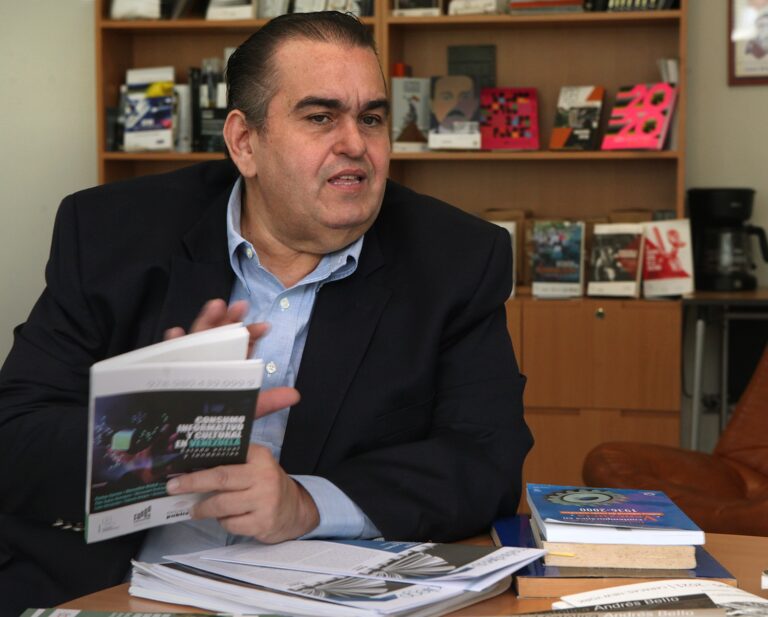Military personnel detained three journalists in Táchira and seized film footage and camera memory cards from reporters in Bolívar.
(IPYS/IFEX) – On 22 July 2009, three journalists from the state of Táchira were held for more than an hour by members of the National Guard, who prevented them from covering a protest by construction workers. The military personnel threatened the journalists for no apparent reason and attempted to seize their equipment.
The journalists affected were Zulma López, a correspondent for RCTV Internacional and the “El Universal” newspaper, her camera operator, Jesús Molina, and Thais Jaimez, a correspondent for the daily “Panorama”. They were attempting to cover a protest by a group of construction workers, members of the Táchira Workers’ Federation (Fetratáchira), who said they had lost their jobs because they are not members of the Bolivarian Construction Union.
López told IPYS that the journalists managed to avoid one military checkpoint on their way to cover the story. However, when they approached the second checkpoint, they were prevented from going any further despite their protests. As they were about to leave, López took some photographs with her cell phone to document their treatment. This annoyed a soldier identified as Lieutenant Vásquez who is in charge of the Urban Security Service of the National Guard’s 1st Regional Command.
The soldier demanded that the journalists hand over the cell phone and their camera. When the camera operator refused to do so, the National Guard officer struggled with him and broke the camera’s lens. According to the journalists, the soldiers surrounded them and threatened them with their weapons.
In a separate incident, on 21 July, military personnel requisitioned and seized videotapes and the memory cards from cameras belonging to a group of journalists who were covering a workers’ meeting at the state-owned Orinoco Iron and Steel company in the city of Guayana, in Bolivar state, southern Venezuela.
Krisaura Vital, a correspondent for RCTV Internacional, told IPYS that a dozen soldiers detained her along with Lorena Cañas, from the Globovisión television station, Nayleh Marcano, from Orinoco TV, Henry Prada, from the “Nueva Prensa de Guayana” newspaper, and Gerardo Harewood, from the “Diario de Guayana” newspaper.
The journalists and their vehicles and briefcases were searched one by one. The soldiers, who were armed, threatened to arrest anyone who resisted. They also demanded that all videotapes and video memory cards be handed over.
Harewood reported that the soldiers wanted above all to seize the footage filmed by RCTV Internacional, which contained statements made by the workers and showed the poor conditions of the company’s internal facilities.
Vital told IPYS that the company’s private security guards were hostile towards the media personnel, restricting access and covering cameras lenses with their hands to avoid being filmed. She said that the journalists’ equipment was taken to the National Guard’s 88th Division Headquarters, ostensibly because the videotapes are part of a spying and sabotage plan and, as such, are classified as intelligence material.
“Correo del Caroní” journalist Clavel Rangel reported that the confiscated material will be sent to the military prosecutor’s office.


